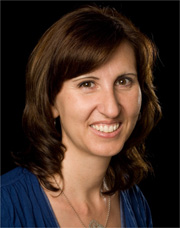A Survey of Parents' Use of Music in the Home With Their Child with Autism Spectrum Disorder: Implications for Building the Capacity of Families
DOI:
https://doi.org/10.15845/voices.v14i1.734Keywords:
families, capacity building, music therapy, early childhood interventionAbstract
Preschool aged children with disabilities including Autism Spectrum Disorder (ASD) typically receive early childhood intervention services that adopt a family-centred approach to supporting child and family outcomes. Family-centred approaches aim to build the capacity of parents to support their child’s development immediately and into the future, and therefore offer parents a variety of resources. One indication of whether these resources have been relevant and useful to the family is to consider how well they have been incorporated into everyday life. This study surveyed 11 families of children with ASD aged 3- 6 years who were receiving music therapy as part of a broader study, and asked them to keep a journal of their use of the music experiences modelled within the sessions during their typical week. It is the first study to ask parents of children with ASD to quantify the time spent in music experiences. Results showed that families can and do use music to engage with their child with ASD, with a total median time of 2.8 hours per week recorded. The total average time comprised four categories of music experiences, including singing, singing and playing instruments, improvising with instruments, and listening to music. Of these, singing and listening to music were the most popular (37% each of the total time) and were best maintained at follow up. These results provide preliminary support demonstrating that music therapy could be a successful way to support capacity building in families by encouraging them to embed therapeutic music experiences into their daily life. Further and more detailed research is needed to investigate this central tenet of family-centred practice, particularly in regards to how families’ use of music experiences change over time.
Downloads
Additional Files
Published
2014-02-23
How to Cite
Thompson, G. A. (2014). A Survey of Parents’ Use of Music in the Home With Their Child with Autism Spectrum Disorder: Implications for Building the Capacity of Families. Voices: A World Forum for Music Therapy, 14(1). https://doi.org/10.15845/voices.v14i1.734
Issue
Section
Research Voices
License
Articles published prior to 2019 are subject to the following license, see: https://voices.no/index.php/voices/copyright

